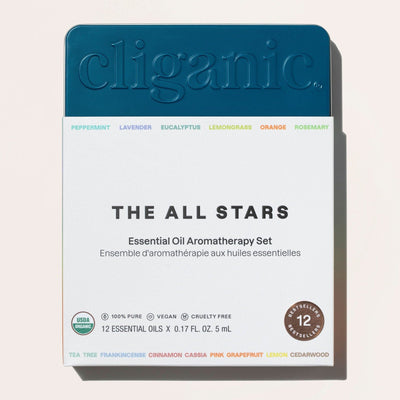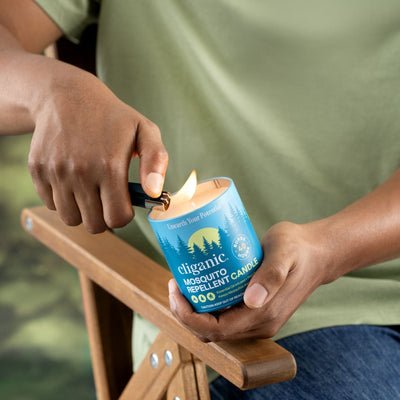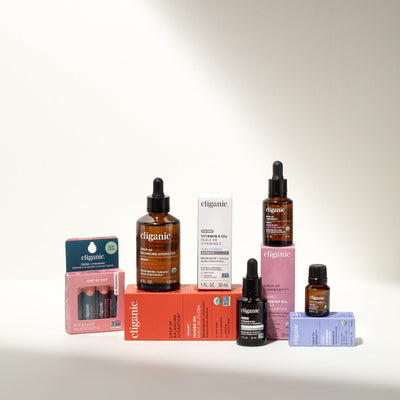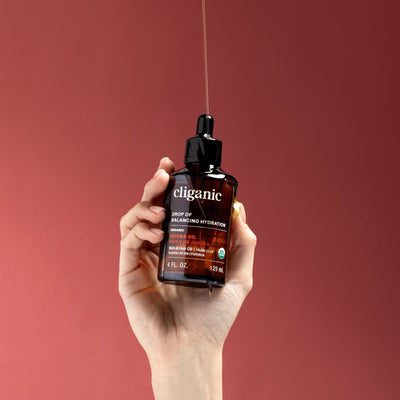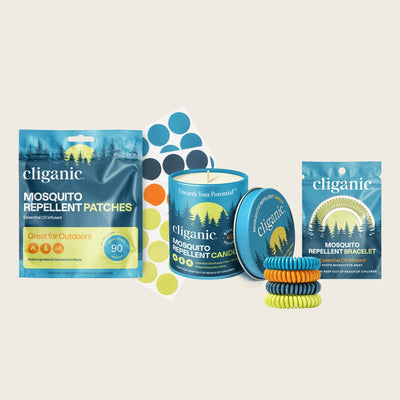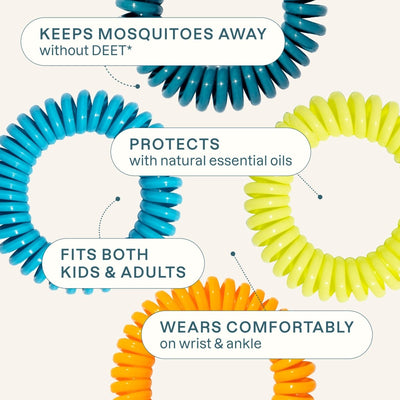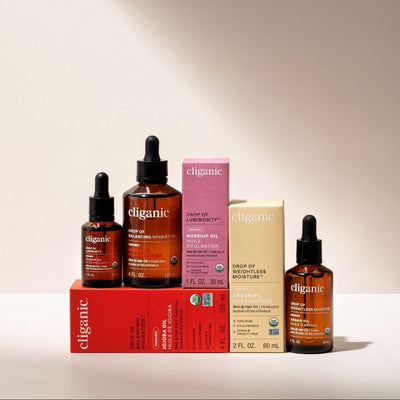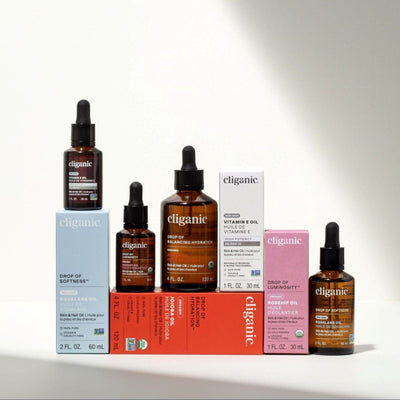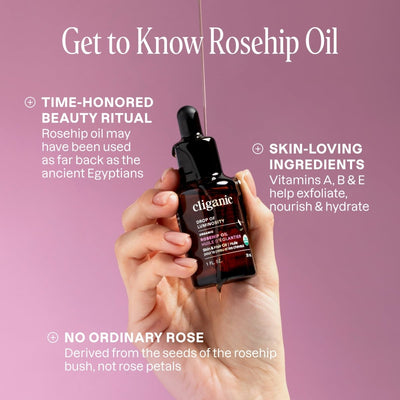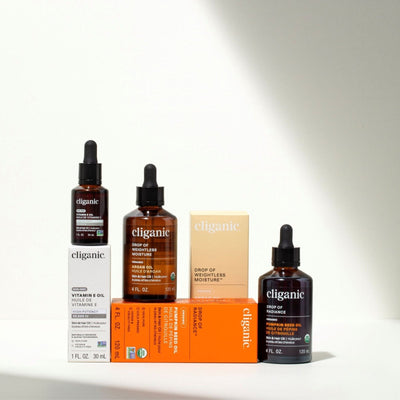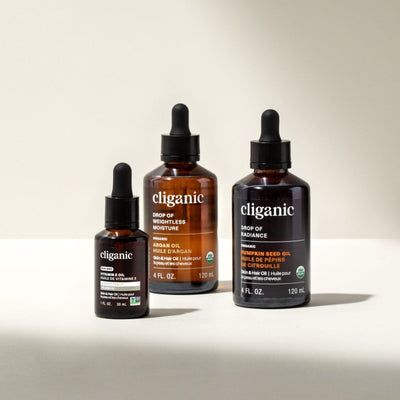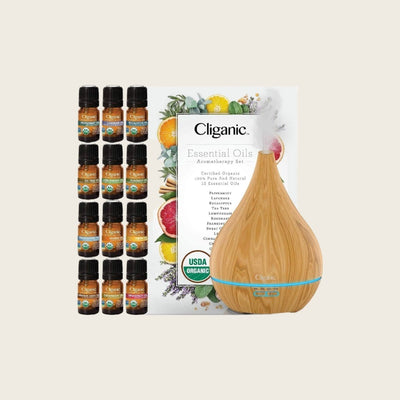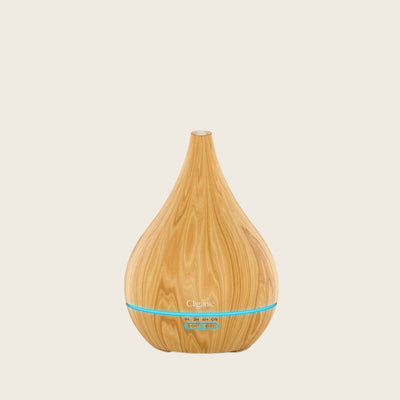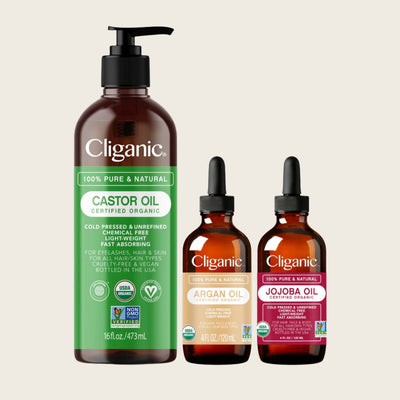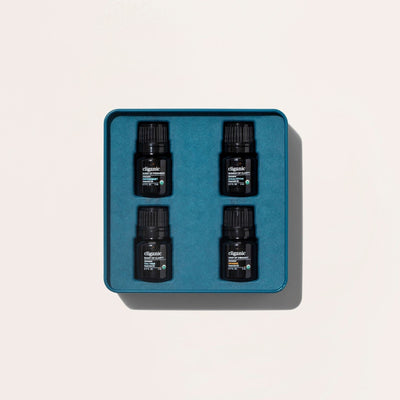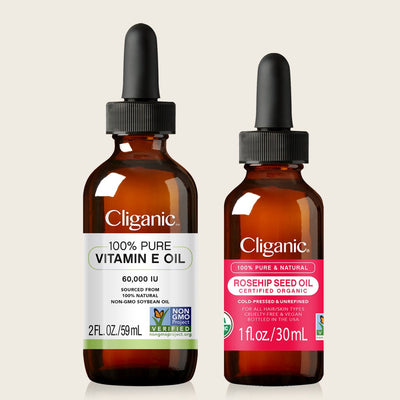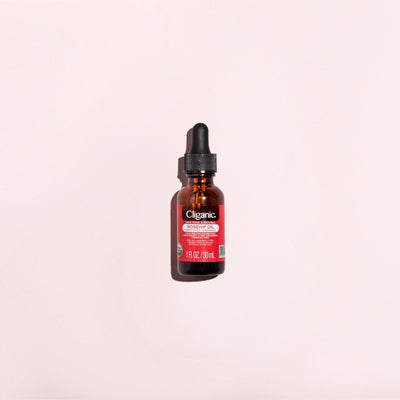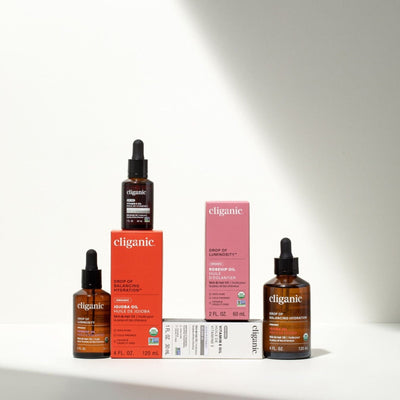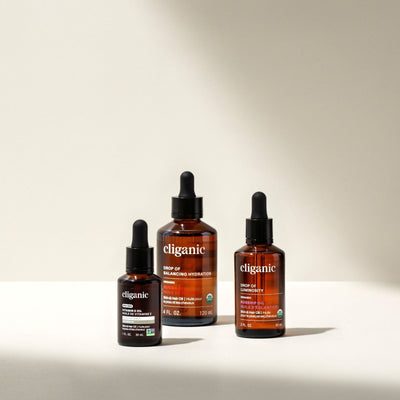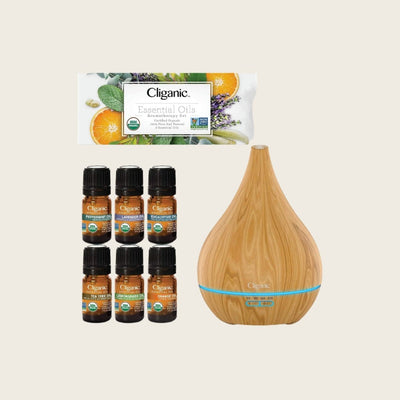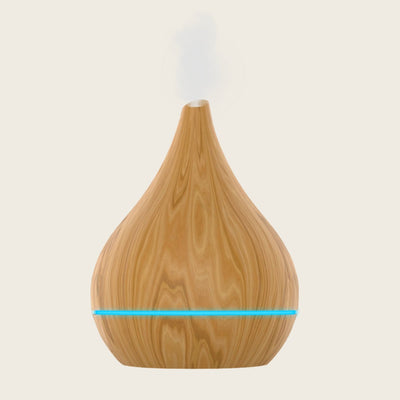16 Nov 2021
Is Frankincense Essential oil good for your hair?
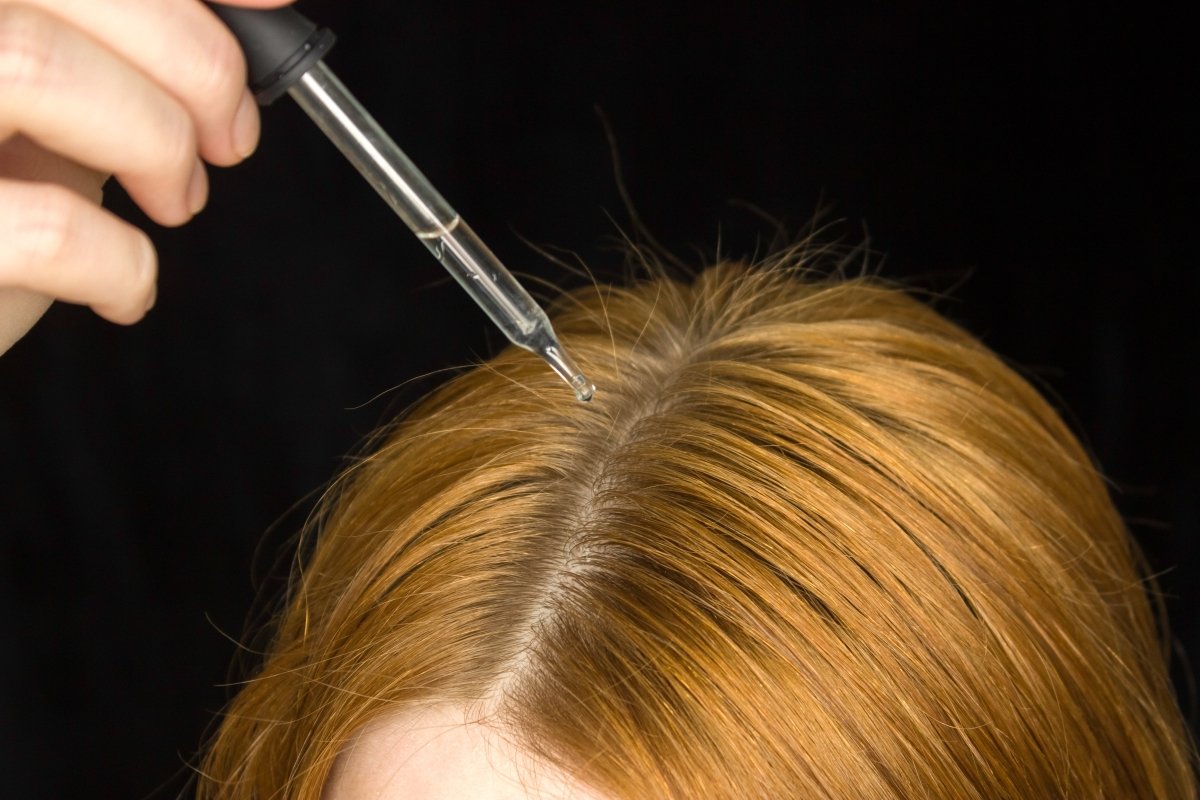
Frankincense essential oil offers us so many great opportunities to feel healthier and support our wellbeing. In addition to making us feel more calm and thoughtful and helping us improve the appearance of our skin, one feature that many essential oil users aren’t as familiar with is how it can make our hair feel and look shinier and more healthy.
But before we dive into why it’s so good for our hair, let’s learn a little more about what it is so we can better understand why it works so well.
What is Frankincense Essential Oil?
Frankincense essential oil is an aromatic liquid extract that is extracted from the resin of the Frankincense tree via a process called steam distillation. This process of extraction is the best way to remove the potent aromatic molecules from the resin, transforming the aroma into a liquid extract, so that we can more effectively use it to benefit our overall wellness.

The Frankincense Tree:
The Frankincense Tree only grows in certain areas of the world, primarily in drier, arid, rockier climates like Somalia, Oman, northern regions of India and the arid parts of Pakistan. The tree is rugged and tough, and can grow on the side of cliffs, in between boulders and rocks, wrapping its roots tightly around whatever it can grab to stay strongly attached to the earth.
Just by looking at an image of the Frankincense tree and noticing how it holds on so tightly to the earth, squeezing out whatever nutrients and life-giving elements it can from an environment that looks like it has nothing to give - tells us a lot about the spirit of the tree. By observing it grow in such adverse environmental conditions, we can get a sense of how strong and intense it’s life force is. And it was probably this feeling that the ancients noticed, and why they felt that Frankincense was such a spiritual and soulful plant.
Frankincense Resin
Not all trees produce resin. Most resin is produced by trees from specific botanical families, and they range in how sticky and thick they feel. Trees like Frankincense produce a sticky, gummy substance that runs just below the bark. The tree produces this resin to help make sure it stays alive and healthy. Here are 3 ways Frankincense Resin helps the tree’s life;
1) Resin is part of the tree’s immune system, and it works to protect the tree against germs and pathogens that could make it sick and die.
2) Resin helps the tree heal when it is injured. Meaning when a branch is violently torn off from a storm, or chopped off by humans, the resin rushes to the surface of the “injury” and literally heals the wound
3) Resin helps transport and deliver nutrients to different areas of the tree to help keep it healthy and strong.

How do we get the Resin out of the tree to make a Frankincense essential oil?
To make Frankincense essential oil we need to extract the resin from the tree without killing it. So the method involves “scoring” or cutting the tree in a special way that allows the resin to rush to the “wound” and ooze out, without exhausting the tree.
Once the resin hits the surface of the tree, it dries and hardens and can be scraped off and collected. We call these dried hardened rocks of resin “tears” - and it’s these chunks and pieces that are then steam distilled to extract out the aromatic components, or the scent - that we know as the essential oil.
A Brief History of Frankincense
For centuries, many cultures and ancient civilizations collected Frankincense resin and burned it directly, creating a really strong aromatic smoke that they believed had healing powers, for both the body and the soul.
- According to the ancient document Egyptian Ebers Papyrus dated about 1500 BC there is evidence that frankincense resin was used by the Early Egyptians for throat infections and asthmatic attacks.
- During the first century AD there is documentation that shows how one of Rome’s respected writers and philosophers, Pliny, used Frankincense resin as an antidote to the poison from Hemlock.
- In the 9th Century, Persian physician Avincena has documented how he used Frankincense resin to reduce tumors, ulcers and fevers.
- Frankincense resin also played an important and valuable role in the Incense and Spice Trades that dominated the economy of early civilizations.
- It’s use in ceremonial and ritual practices across cultures since ancient times was well documented and highly prized.
There are 5 different kinds of Frankincense Trees:
Boswellia Carteri: This is what is known as “Sacred Frankincense” and it is the species that is thought to be mentioned in the Bible and other ancient texts, and was the most prized and valued kind of Frankincense traded throughout the centuries. It grows only in Somalia and Oman, and the resin looks white. Today, this region continues to produce some of the most valuable and highly prized resin.
Boswellia frereana and Boswellia thurifera are species of frankincense that grow only in northern Somalia and have been of great value to Coptic Chrsitians and Muslims for centuries. The resins coming from these two different rees tend to have a more pronounced lemony scent than the other Frankincense resins.
Boswellia papyrifera is a species of Frankincense that also grows in Somalia but this resin doesn’t dry into a hardened crystal but remains gooey and oily, and runs clear. We don’t often find this resin steam distilled into an essential oil.
Boswellia serrata is a species of Frankincense that grows in the northern parts of India is more gold and brown in color and has been used in ancient Ayurvedic medicinal practice for centuries. Like the Boswellia carterri, this Frankincense resin is the most widely used in Aromatherapy practice.
How to use Frankincense Essential Oil today
How we use Frankincense Essential Oil today is very much influenced by how it has been used throughout the centuries. Like the ancients we reach for Frankincense to help us feel better and support our wellbeing, and improve the appearance of our skin and hair.
2 ways to use Frankincense essential oil to improve the appearance and wellbeing of our hair.
Here are 2 ways we can use Frankincense Essential Oil to help make our hair look and feel healthier and and more vibrant.
Scalp Massage:
Beautiful healthy hair starts with taking care of our scalp. So,massaging your scalp with plant oils like Jojoba and Frankincense can make the skin on your head feel more balanced and nourishe, resulting in hair that looks and feels shinier and more nourished.
All you have to do is add just 4 drops of Frankincense Essential Oil to 1 TBSP of Jojoba Oil and gently massage onto your scalp.
Here’s how to do it:
- Part your hair in sections and apply the blended Jojoba and Frankincense Oil directly to the exposed areas of your scalp and use your fingertips to gently massage the oil until it feels absorbed. Repeat this for each parted section.
- Once you’ve applied the oil to your entire scalp you can run the extra oil through the rest of your hair, paying close attention to the ends which tend to feel more dry and damaged.
- Next, you can wrap your head in a towel and sit for 30 minutes and let the oil penetrate.
- Finally, gently wash your hair to remove any excess oil.
Frankincense and your Shampoo
Try adding Frankincense Essential Oil to your regular Shampooing.
Shampooing your hair helps remove dirt, grime and build up of natural oils that could potentially make the hair look dull and less vibrant. But the key is not to shampoo too often, as many of the natural oils our scalp produces are actually beneficial for the look and feel of our hair. Try instead reducing your daily shampooing to maybe twice a week and see if you notice a difference.
Here’s how you can boost your shampooing experience by adding frankincense essential oil:
- Add 3 drops of Frankincense essential oil to the amount of shampoo you are adding into the palm of your hand. Mix it gently with your fingertips before applying to your wet head.
- Shampoo as you usually do, rinse and repeat.
Let us know how adding Frankincense essential oil to your hair care routine has helped!



